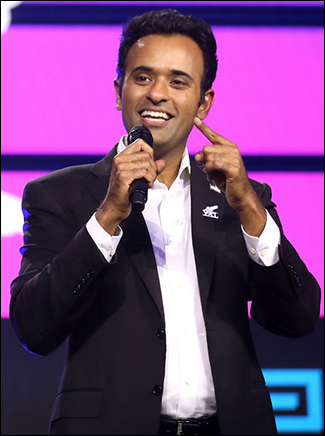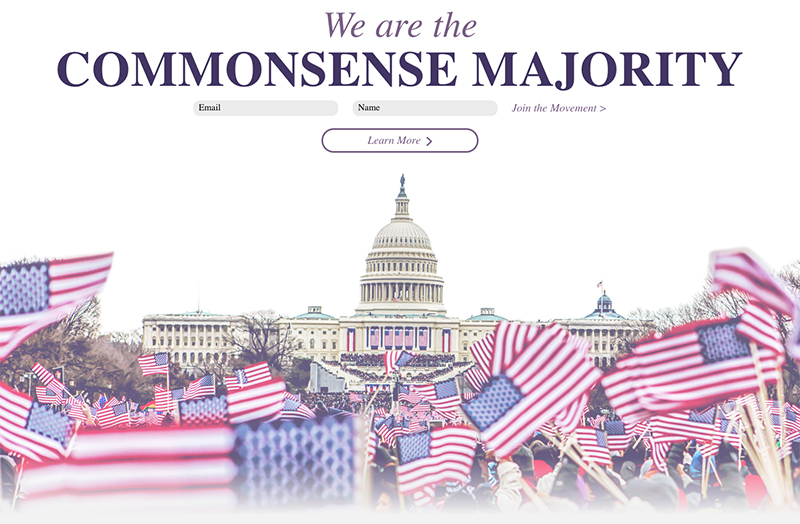By Jim Ellis — Tuesday, Aug. 22, 2023
President

Republican presidential candidate Vivek Ramaswamy gets a polling boost. / Photo by Gage Skidmore
Their poll (Aug. 16-17; 1,000 registered US voters; multiple sampling techniques), surveying the self-identified Republicans, shows former President Donald Trump again topping the field with 56 percent, while Florida Gov. Ron DeSantis and Ramaswamy each post 10 percent support figures. When compared to Emerson’s June national poll, Gov. DeSantis has dropped 11 percentage points and Ramaswamy has gained eight.
Senate
Michigan: New Poll; Similar Close Result: Regular Michigan media pollster EPIC-MRA went into the field to test a potential open Michigan Senate general election between US Rep. Elissa Slotkin (D-Lansing) and former seven-term US Congressman Mike Rogers (R). The poll (Aug. 6-11; 600 likely Michigan voters; live interview) sees Rep. Slotkin leading Rogers, 42-37 percent, which is similar to Emerson College’s Michigan poll (Aug. 1-2; 1,121 registered Michigan voters; multiple sampling techniques) that found a 44-38 percent ballot test between the pair.
Both candidates are relatively unfamiliar to the statewide respondent sample. A total of 54 percent of poll respondents said they did not recognize Rep. Slotkin, and 72 percent responded in the same way when asked about Rogers. Rogers left office at the beginning of 2015. Slotkin was first elected to the House in 2018.
House
MN-5: Rep. Omar Draws Dem Primary Challenge — Attorney and non-profit organization founder Sarah Gad (D), who overcame opioid addiction to attend law school and pass the bar, becomes the first individual to enter the 2024 Minnesota Democratic primary against controversial three-term Rep. Ilhan Omar (D-Minneapolis).
In 2022, Rep. Omar found herself in a very tight primary campaign, outlasting former Minneapolis City Councilman Don Samuels by just a 50.3 – 48.2 percent margin, a difference of 2,466 votes of 114,567 ballots cast. It’s likely that others, possibly including Samuels, will enter what should be another competitive Democratic primary race.
OH-13: Republican Gilbert Withdraws — Madison Gesiotto Gilbert (R), who lost the open Akron anchored 13th Congressional District race to now-freshman Rep. Emilia Sykes (D-Akron) last November, announced that she will end her abbreviated 2024 rematch campaign and will instead serve as a spokeswoman for the Republican National Committee.
The 13th District, which the FiveThirtyEight data organization rates as D+2, is competitive and we can expect Republicans to again put forth a strong challenge effort. Currently in the GOP race are Greg Wheeler, who finished second in the 2022 GOP congressional primary and Hudson City Councilman Chris Banweg. Former Ohio Republican Party chair and 2022 US Senate candidate Jane Timken indicates she is considering entering this contest.






